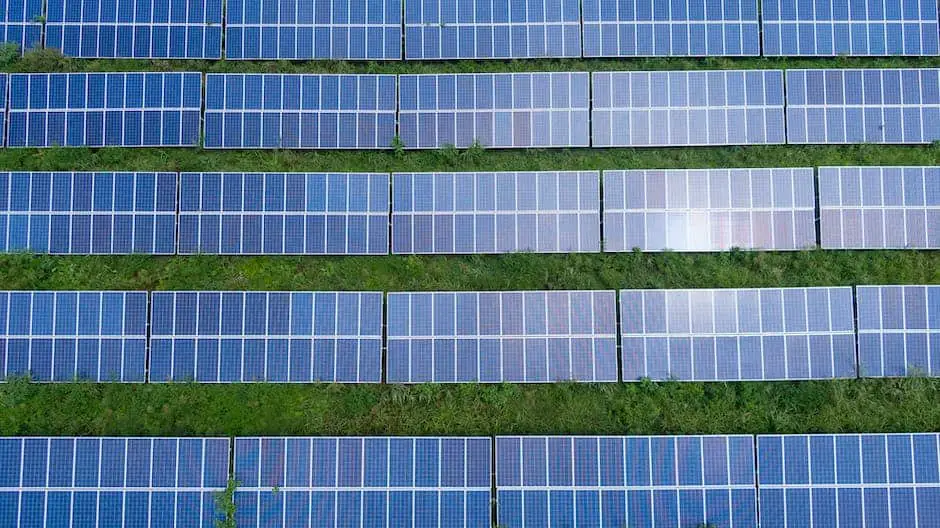
Tips for Buying a Home with Solar Panels
As the demand for clean and renewable energy sources increases, more and more homeowners are considering solar panels as a viable option. In fact, the number of solar-powered homes in the United States has grown exponentially in recent years. If you’re in the market for a new home, you may come across properties with solar panels already installed. This article will provide valuable insights and tips for buying a home with solar panels, helping you make an informed decision as a real estate investor, homeowner, first-time homebuyer, or real estate agent.
Understanding Solar Panels and Their Benefits
Before diving into the tips, it’s essential to understand what solar panels are and the benefits they offer. Solar panels, also known as photovoltaic (PV) panels, are devices that convert sunlight into electricity. They are typically installed on rooftops or other open spaces to maximize sun exposure.
Some of the key benefits of solar panels include:
- Reduced energy bills: Solar panels can significantly lower your monthly electricity bills, as they generate free electricity from sunlight.
- Environmentally friendly: Solar energy is a clean and renewable source, which helps reduce greenhouse gas emissions and reliance on fossil fuels.
- Increased property value: Homes with solar panels often have higher resale values, as buyers are willing to pay a premium for the energy savings and environmental benefits.
- Energy independence: With solar panels, you can generate your own electricity and reduce your dependence on utility companies.
1. Determine the Ownership Status of the Solar Panels
When considering a home with solar panels, it’s crucial to determine the ownership status of the panels. There are two common scenarios:
- Owned solar panels: The homeowner owns the solar panels outright, and they are included in the Sale of the property.
- Leased solar panels: The homeowner has a lease agreement with a solar company, and the new homeowner will need to take over the lease or buy out the remaining contract.
Understanding the ownership status is essential, as it can impact the overall cost of the home and your responsibilities as the new homeowner.
2. Evaluate the Age and Condition of the Solar Panels
Solar panels have a lifespan of approximately 25-30 years, so it’s essential to evaluate their age and condition. Ask the seller for documentation on the installation date, maintenance records, and any repairs or replacements that have been made. This information will help you determine the remaining lifespan of the panels and any potential costs for repairs or replacements in the future.
3. Assess the Energy Production and Savings
One of the main benefits of solar panels is the potential for energy savings. Request copies of the home’s past utility bills and any solar production reports to assess the energy production and savings. This information will help you understand the financial benefits of the solar panels and whether they align with your energy consumption needs.
4. Review the Warranty and Insurance Coverage
Most solar panels come with a manufacturer’s warranty, typically covering 25 years for performance and 10-12 years for materials. Review the warranty documentation to ensure it’s still valid and will be transferred to you as the new homeowner. Additionally, check with your insurance provider to confirm that the solar panels will be covered under your homeowner’s insurance policy.
5. Understand the Local Incentives and Regulations
Many states and local governments offer incentives for solar energy, such as tax credits, rebates, and net metering programs. Research the local incentives and regulations in your area to understand the potential financial benefits and any requirements for maintaining or upgrading the solar panels.
6. Consult with a Solar Professional
If you’re unfamiliar with solar panels, it’s a good idea to consult with a solar professional before making a decision. They can help you evaluate the solar system’s performance, provide guidance on potential upgrades or repairs, and answer any questions you may have about the technology.
7. Factor Solar Panels into the Home Appraisal and Negotiation
When buying a home with solar panels, it’s essential to factor them into the home appraisal and negotiation process. Work with your real estate agent and appraiser to determine the added value of the solar panels and ensure they are accurately reflected in the home’s overall value. Additionally, consider any potential costs for repairs, replacements, or lease buyouts when negotiating the final purchase price.
Conclusion
Buying a home with solar panels can offer significant financial and environmental benefits, but it’s essential to approach the process with a thorough understanding of the technology and its implications. By following these tips, you can make an informed decision and enjoy the many advantages of solar energy in your new home. Remember to determine the ownership status, evaluate the age and condition, assess the energy production and savings, review the warranty and insurance coverage, understand the local incentives and regulations, consult with a solar professional, and factor solar panels into the home appraisal and negotiation process.